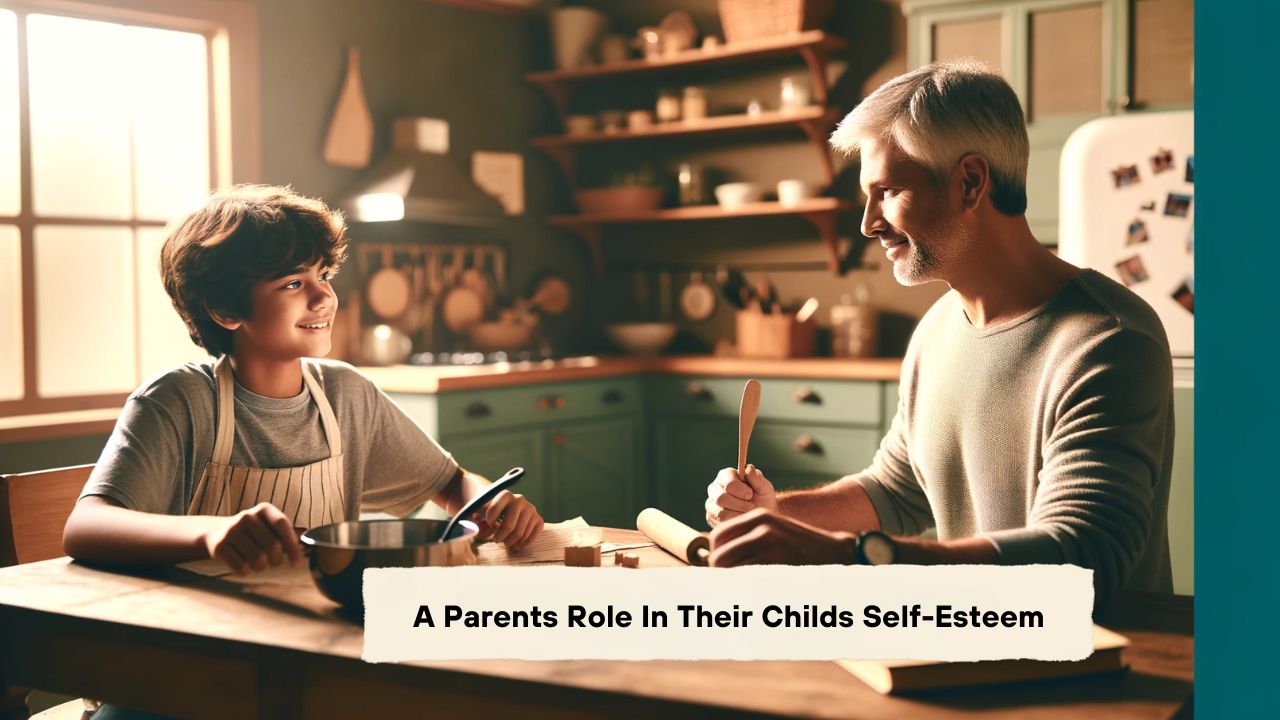Epic Strategies for Building Self-Esteem in Tweens

In the transition from childhood to adolescence, tweens face a myriad of challenges that can significantly impact their self-esteem. As they navigate this critical stage, parents play a crucial role. They guide and support their children’s emotional and psychological well-being.
This article, drawing insights from experts like Rutger C. M. E. Engels from (The Book Child and Family Studies) provides effective strategies. It incorporates best practices to help parents build self-esteem in tweens.
Parents can support their children’s unique skills. They should also listen attentively and foster additional sources of support. Allowing children to experience failure and modeling positive behavior are also crucial. By focusing on these key aspects, parents can nurture resilience and a positive self-image in their tweens.
With the right approach, parents can help their tweens develop self-worth. This robust self-worth will serve as a strong foundation for their teenage years and beyond.
Building Self-Esteem in Tweens
Building self-esteem in tweens is a delicate yet crucial process. It involves more than just occasional praise. It requires a consistent effort to recognize and celebrate their unique qualities and achievements. As parents, it’s important to acknowledge the diverse skills and talents of your tween. They may excel in academics, sports, arts, or any other area. This recognition plays a significant role in how they perceive their worth.
If your family traditionally values academic achievement, but your child excels in sports, show appreciation for their athletic prowess. Appreciate their athletic skills equally. This balanced approach helps tweens understand that their value isn’t tied to a single aspect of their identity. It is a reflection of their multifaceted capabilities.
Parents can broaden the scope of what is considered valuable. By doing so, they create a more inclusive environment. This environment nurtures their tween’s self-esteem in various aspects of their lives.

Listen and Pay Attention as has a huge impact
The simple act of listening attentively can have a profound impact on a tween’s self-esteem. We live in a world where distractions are abundant. Giving your child undivided attention is important. Even if it’s just for a short period, this can make a significant difference.
Active listening involves more than just hearing their words. It means engaging with their thoughts, feelings, and experiences. Do this without judgment or immediate advice. This approach helps tweens feel valued and understood.
When parents listen in this manner, they strengthen their bond with their children. They also reinforce the child’s sense of self-worth. Parents show genuine interest in their children’s lives. They reflect their feelings back to them. This creates a safe space where tweens feel comfortable expressing themselves.
This nurturing environment is pivotal in building their self-esteem and resilience, preparing them for the challenges they may face.
Encourage Self-Esteem Building Support Through networking
While parental support is indispensable, tweens also benefit greatly from having a diverse network of supportive relationships. Encourage your tween to develop meaningful connections with adults outside the family. Adults such as teachers, coaches, or mentors can significantly boost their self-esteem.
These additional sources of support offer different perspectives and can provide guidance and validation that complements what parents provide. It’s also beneficial for tweens to have positive peer relationships.
These connections help them learn social skills. They experience a sense of belonging. They gain confidence in their ability to interact with others.
However, parents need to allow tweens to form these relationships naturally. This approach ensures they feel a sense of autonomy. It also helps them develop a sense of competence. A rich tapestry of supportive relationships can create a strong safety net for tweens.
This network assists them in navigating the complexities of this developmental stage. It helps them with greater confidence and self-assurance.
Let Them Fail Often
One of the most challenging yet essential lessons for tweens is learning to cope with failure. As parents, it’s natural to want to shield your children from disappointment. However, allowing them to experience setbacks is crucial for building resilience. Failure is not just an inevitable part of life; it’s a valuable teacher.
When tweens learn to face challenges and overcome obstacles, they develop a sense of competence and strength. Parents need to provide support and encouragement during these times. They should help tweens understand that failure is a stepping stone to success. It is not a permanent state.
By embracing failure as a learning opportunity, tweens can grow in confidence. They develop a resilient mindset that benefits them throughout their life.

Be a Good Role Model
The influence of parental behavior on tweens’ self-esteem is immense. Tweens learn about self-worth not just through words but significantly through observation of adult behaviors around them.
Demonstrating healthy self-esteem means more than just avoiding negative self-talk. It includes a range of behaviors. Parents can actively model these behaviors to positively influence their child’s perception of themselves. Here are some key behaviors that can help:
By incorporating these behaviors into daily life, parents can provide a strong, positive example for their tweens. This proactive approach in modeling can greatly reinforce the development of healthy, robust self-esteem in tweens.

How to Build Confidence in Shy Tweens: Nurturing Self-Esteem in Your Introverted Child
Navigating the tween years can be challenging, especially for shy or introverted children. As a parent, you play a crucial role in helping your shy tween develop the confidence they need to thrive.
Shyness is a personality trait and not something to be “fixed.” However, there are proven strategies you can use to nurture your child’s self-esteem. These strategies will empower them to embrace their quiet strengths.
Understanding Your Shy Tween
It’s important to remember that shyness doesn’t equate to weakness or lack of confidence. Shy tweens often possess rich inner lives and a deep capacity for empathy and observation. They may simply need a little extra support and encouragement to step outside their comfort zones.
Effective Strategies to Boost Confidence:
Empowering Your Shy Tween for a Brighter Future:
Implement these strategies with patience and understanding. You can help your shy tween develop the confidence they need. This confidence will help them navigate the challenges of adolescence and beyond.
Building confidence is a journey, not a destination. Celebrate your tween’s unique personality and empower them to embrace their strengths as they blossom into confident young adults.

Dealing with Low Self-Esteem in Tweens During Puberty
Puberty is a period of significant physical changes. It is also a time of emotional changes. For many tweens, it can be a time of heightened self-consciousness and vulnerability.
Fluctuating hormones, rapid body changes, and social pressures can cause low self-esteem. Therefore, parents must provide support and guidance during this turbulent phase.
Recognizing the signs of low self-esteem in your tween is the first step towards addressing the issue. These signs may include negative self-talk, social withdrawal, increased anxiety, and changes in academic performance or eating habits.
Open communication is key. Create a safe space for your tween to express their feelings and concerns without judgment. Actively listen and validate their experiences, letting them know they are not alone in their struggles.
Beyond providing emotional support, there are practical strategies you can implement to help your tween navigate low self-esteem during puberty. Encourage them to focus on their strengths and accomplishments, fostering a sense of competence and self-worth.
Help them develop healthy coping mechanisms for managing stress and anxiety, such as mindfulness techniques, exercise, or creative outlets.
If their struggles persist, consider seeking professional guidance from a therapist or counselor. This can provide valuable support. It equips them with tools to build resilience. They can then navigate the challenges of adolescence with greater confidence.
Final Takeaway
The journey to building self-esteem in tweens is multifaceted. It requires patience, understanding, and proactive engagement from parents.
Parents can significantly influence their tween’s self-perception and resilience. They do this by encouraging tweens to value their skills and by providing attentive listening. They also foster additional sources of support. Allowing tweens to experience and learn from failure. Being a good role model is essential too.
The strategies discussed in this article are not only about nurturing self-esteem in tweens. They also focus on strengthening the parent-child relationship. This relationship is the foundation for a tween’s emotional and social development.
As parents implement these approaches, they help their tweens build a positive self-image. They also set the stage for their children to transition into confident and resilient adolescents.






